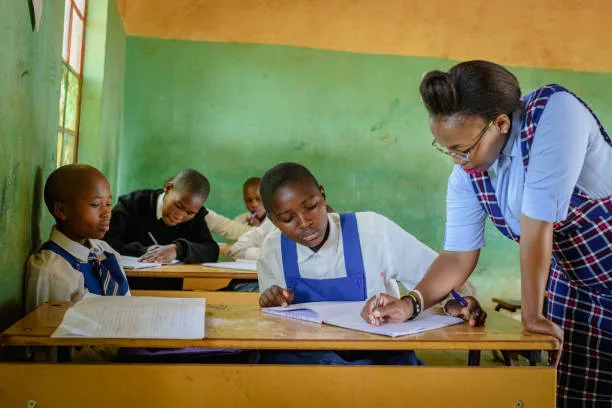Parents’ Losing Streak in Court Cases Raises Questions About Education Rights in Private Schools.
For over a decade, parents have sought court declarations compelling private schools to uphold the constitutional right to education.
However, these efforts have proven unsuccessful, as courts consistently rule that while Article 43 of the Constitution guarantees every child the right to education, private schools are not obligated to provide it.
The first attempt occurred in 2014 when a parent challenged Rusinga Schools for expelling his child due to refusal to shave dreadlocks, citing cultural reasons. More recently, in 2023, another parent petitioned after Makini Schools expelled her children following a dispute with their father.
Courts have repeatedly emphasized that the relationship between private schools and their students is a contractual business arrangement, which differs from that of public schools and can be legally terminated.
The Constitutional Interpretation
The core argument in these cases revolves around Article 43(1)(f) of the Constitution, which states that every person has a right to education.
However, judicial rulings have upheld that private schools bear no constitutional responsibility to provide education.
In a landmark ruling, Judge Lawrence Mugambi of the Constitutional Court in Nairobi reinforced that the duty to provide education lies with the state, not private institutions.
He stated that when a student is expelled from a private school, it does not amount to a violation of the right to education but rather a breach of contract.
Judge Mugambi drew an analogy to rental agreements, explaining that when a lease is terminated, a landlord is not obligated to provide shelter to a tenant’s children.
Similarly, the responsibility of explaining such outcomes lies with the parents. His decision came amid rising legal disputes between parents and private school owners over expulsions and alleged violations of the right to education.
Courts Upholding Institutional Authority
Another significant ruling came from Judge Mumbi Ngugi, now in the Court of Appeal, who upheld Rusinga Schools’ decision to expel a student for wearing dreadlocks.
The court determined that private institutions have the right to enforce codes of conduct and that Rusinga Schools’ grooming policy, which required conventional hairstyles, was not discriminatory.
The parent argued that the rule infringed upon her son’s cultural rights, as dreadlocks were part of his father’s Jamaican heritage. However, the court ruled that private schools can enforce rules as long as they align with established standards and do not explicitly discriminate.

Similarly, Justice James Makau ruled that while the Constitution guarantees education, this right is not absolute and does not necessarily extend to private institutions.
He emphasized that private schools function differently from state-run institutions, and their obligations stem from contractual agreements between parents and schools at the time of enrollment.
Financial Disputes and Fee Regulations
Parents have also sought legal interventions regarding the regulation of fees in private schools. However, courts have consistently ruled that fee structures are determined by market forces, and parents who voluntarily enroll their children in private institutions cannot later demand reduced fees based on constitutional rights.
Justice Weldon Korir, now in the Court of Appeal, acknowledged the importance of children’s rights but stressed that private education providers also have rights as investors.
He ruled that courts should not interfere with school fees, as pricing decisions involve complex financial considerations that courts are not equipped to regulate.
A 2020 dispute between a parent and Brookhouse Schools reaffirmed this stance. The ruling noted that each private school operates with unique budgets and traditions, influencing fee structures and parental choices in selecting institutions.
Role of Private Schools in Education
The courts have further clarified the role of private schools in ensuring a conducive learning environment.
In a case concerning school closures and student registration for national exams, the High Court ruled that both public and private institutions fall under basic education but operate under different obligations.
The closure of The Emmaus School in 2015 due to unpaid fees demonstrated that private institutions function through contractual obligations, not constitutional mandates.
Additionally, Justice Joseph Louis Onguto, before his passing, ruled that while private schools must foster a favorable learning environment, parents are responsible for paying fees to access these services.
He emphasized that private schools cannot be equated to public schools, where tuition is free and regulated by the government.
Discipline and Expulsions
Judicial rulings have also upheld the authority of private schools to enforce disciplinary actions. In a case concerning the expulsion of a student due to drug-related misconduct, Justice Wilfridah Okwany ruled that while education is a fundamental right, it is subject to institutional rules and regulations.
She determined that the student’s expulsion was justified as it was a consequence of violating school policies. The ruling affirmed that expulsion under such circumstances does not constitute a denial of education, as the student had the option to enroll in another institution.
Read Also: TSC Checklist of Essential Professional Documents for Teachers
Conclusion
The courts have consistently reinforced that private schools are not constitutionally obligated to provide education.
Their primary duty is to uphold contractual agreements with parents, who voluntarily enroll their children and agree to institutional policies, including discipline and fees.
While the right to education remains a constitutional guarantee, the legal responsibility to ensure its realization falls on the state, not private entities.
Parents’ Losing Streak in Court Cases Raises Questions About Education Rights in Private Schools
Follow Teachers Updates on Facebook, LinkedIn, X (Twitter), WhatsApp, Telegram, and Instagram. Get in touch with our editors at [email protected].


Discussion about this post